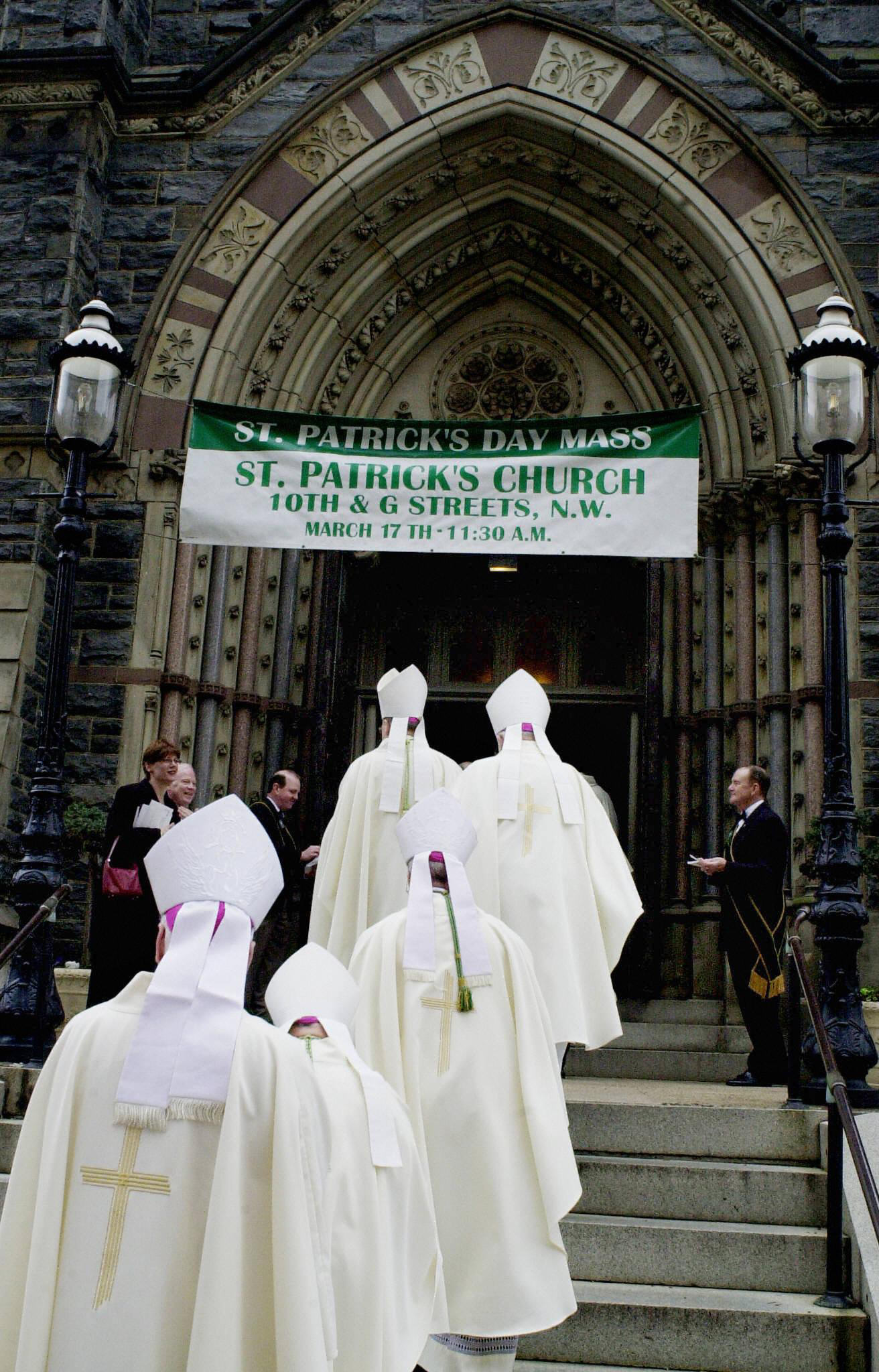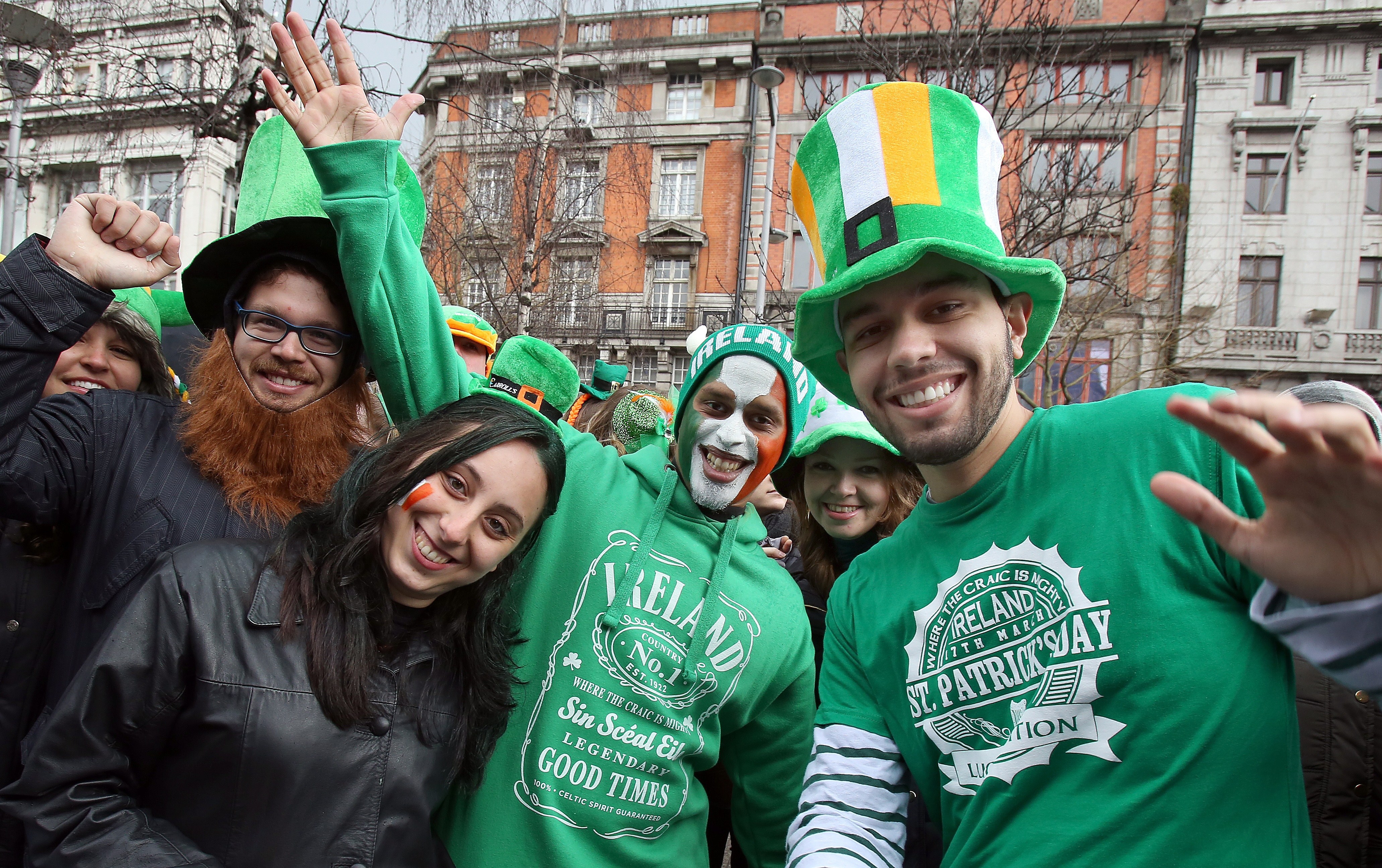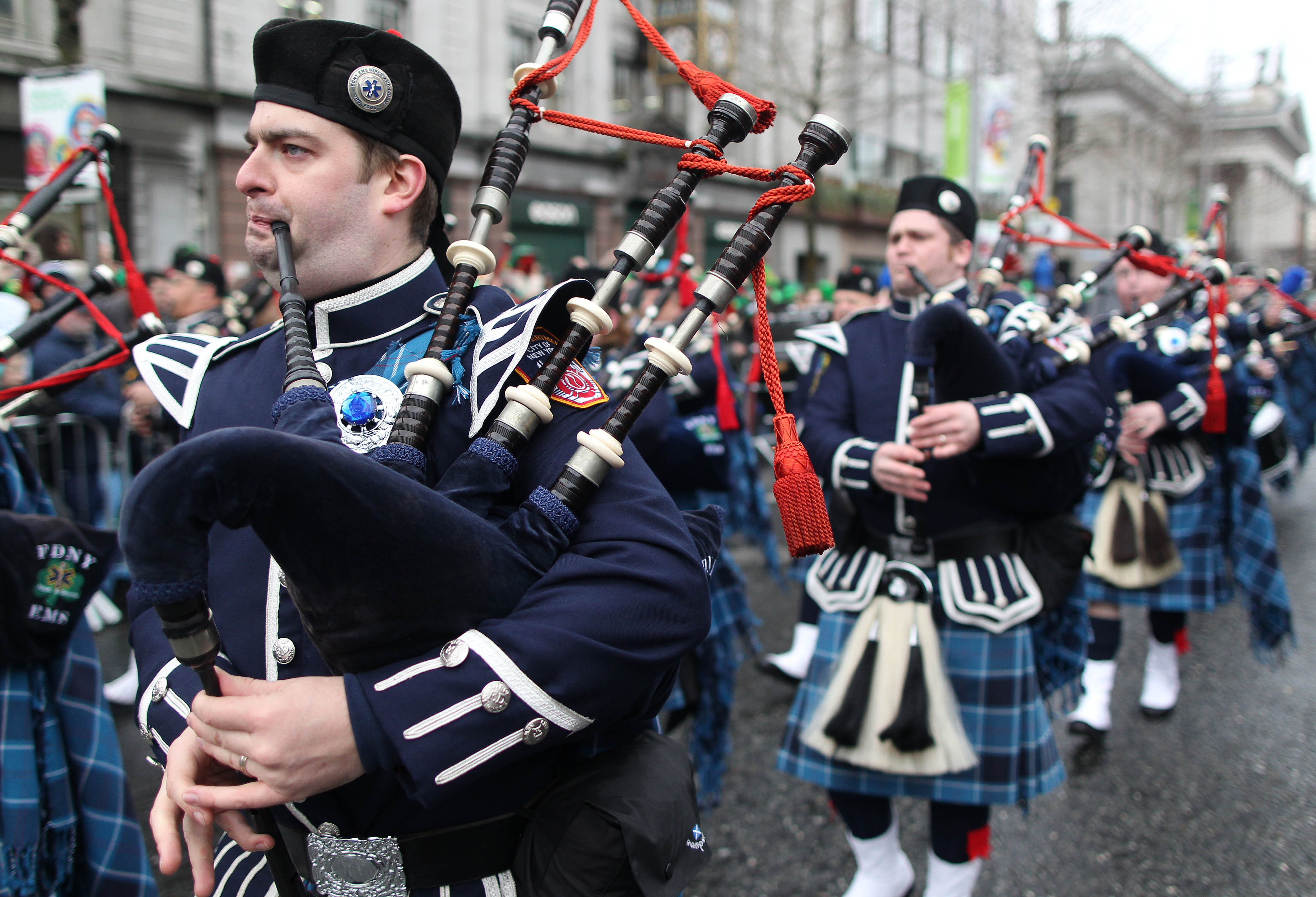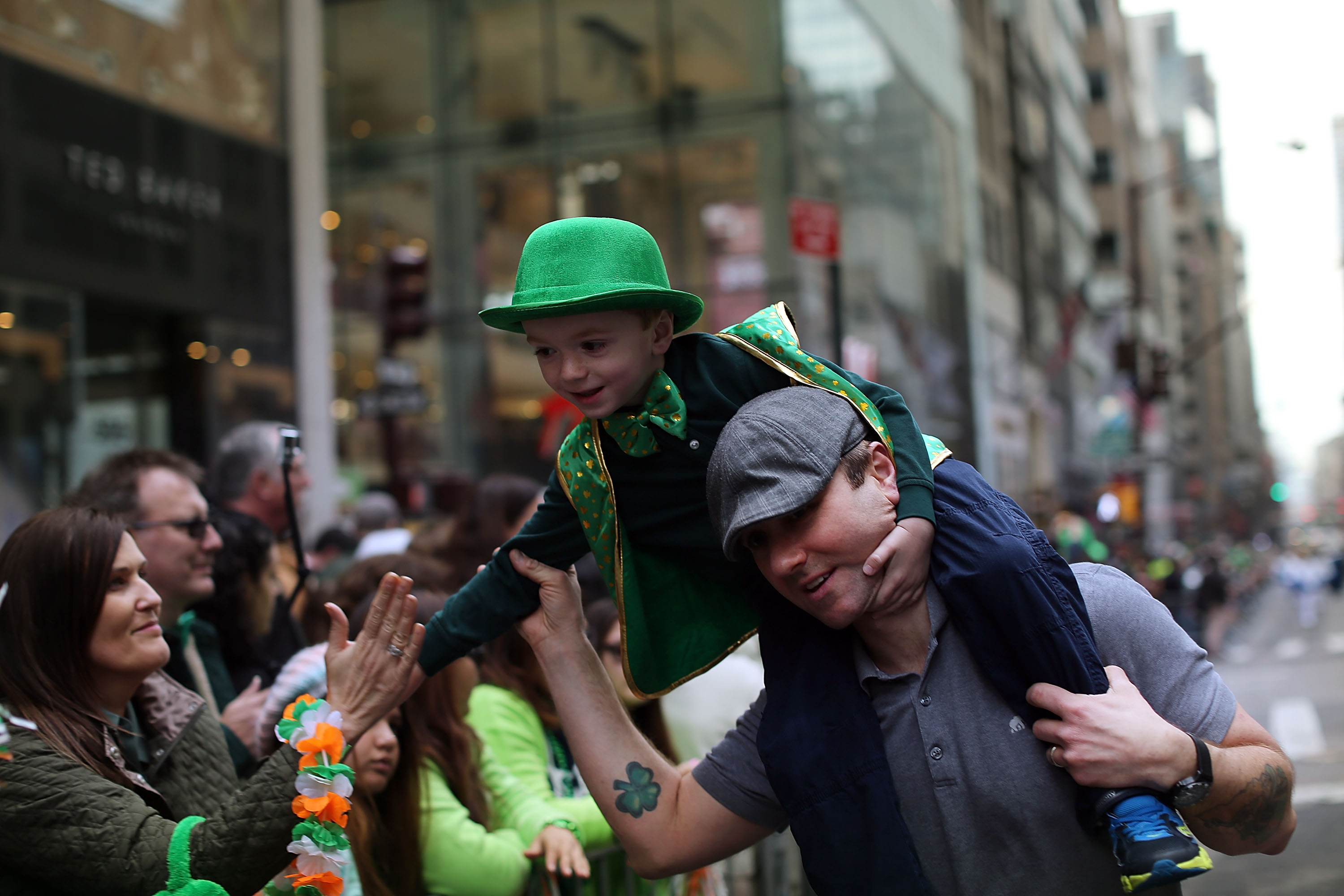St. Patrick’s Day is being celebrated on March 17 in Ireland and around the world.
Google is marking the holiday with a Doodle drawn by Irish artist Chris O’Hara.
“In the spirit of the day, O’Hara chose to paint the logo green with a little assistance from a friendly shamrock,” Google says. “We hope it reflects the boundless energy and welcoming spirit of Ireland, as Google sports green for the great Éire.”
Here’s what you need to know about the history of St. Patrick’s Day:
1. The Holiday Honors St. Patrick, the Patron Saint of Ireland
St. Patrick’s Day honors the patron saint of Ireland, St. Patrick, who lived from about 387 AD to 461 AD, according to Catholic.org.
He was born in Roman-controlled Britain and kidnapped by pirates, who took him to Ireland as a slave and to herd sheep. He eventually escaped, but then had a vision and returned to Ireland, Catholic.org explains:
I saw a man coming, as it were from Ireland. His name was Victoricus, and he carried many letters, and he gave me one of them. I read the heading: ‘The Voice of the Irish.’ As I began the letter, I imagined in that moment that I heard the voice of those very people who were near the wood of Foclut, which is beside the western sea-and they cried out, as with one voice: ‘We appeal to you, holy servant boy, to come and walk among us.’
He became a priest and returned to Ireland in 433. His time in Ireland has led to many legends. He was able to convert thousands to Christianity and began to build churches around the country.
The shamrock is associated with St. Patrick’s Day because he used it to explain the Holy Trinity (the Father, Son and Holy Spirit), according to Catholic.org.
After living and preaching in Ireland for 40 years, he died in 461.
2. St. Patrick’s Day Was Made an Official Feast Day in the 17th Century

St. Patrick’s Day mass is celebrated at the Church of St. Patrick March 17, 2004 in Washington, DC. (Getty)
The celebration of the feast day of St. Patrick began in 1631, according to Time.
Marion Casey, an assistant professor of Irish Studies at New York University, told Time that the modern holiday didn’t begin until the early 18th century. Time explains:
It wasn’t until the early 18th century that many of today’s traditions were kicked into high gear. Since the holiday falls during Lent, it provides Christians a day off from the prescriptions of abstinence leading up to Easter, and around the 1720s, the church found it “got kind of out of control,” Casey says. It was to remind celebrants what the holiday actually stood for that the church first associated a botanical item—customary for all saints—with St. Patrick, assigning him the symbol of the likewise lucky shamrock.
Pope Francis recognized St. Patrick on Wednesday.
“Tomorrow we will commemorate St. Patrick, the apostle of Ireland,” Pope Francis said. “His spiritual stamina stirs you, dear young people, to be consistent with your faith; his trust in Christ the Savior sustains you, dear sick and infirm people, in times of great difficulty; and his missionary dedication reminds you, dear newlyweds, of the importance of the Christian education of your children.”
3. It Is a Holy Day of Obligation for Catholics in Ireland & a Celebration Day Countrywide

Revellers pose for pictures as they take part in the St Patrick’s Day Parade in Dublin, Ireland, on March 17, 2015. (Getty)
In the Catholic dioceses of Ireland, the Feast of St. Patrick is a holy day of obligation, meaning Catholics are expected to attend Mass, according to CatholicIreland.net.
It is also a national holiday across Ireland, according to Ireland.com, the country’s tourism website.
“In Dublin, the run-up to St Patrick’s Day is an excuse for a four-day festival embracing everything from salsa dancing to céilís (traditional dances); while Derry-Londonderry’s Seachtain na Gaeilge (Irish Language Week) is a lively and linguistic build-up to the big day, with events throughout the city. The oldest St Patrick’s Day parade in Ireland is in County Wexford. It began in 1917 and is still going strong,” the website says.
4. The Holiday Is Also Celebrated With Parades & Other Festivities in the U.S. & Around the World

Members of the New York City Fire department play the bagpipes on the parade route during St Patrick’s Day festivities in Dublin on March 17, 2013. (Getty)
It’s not just in Ireland where the holiday is celebrated. Because of the Irish diaspora, St. Patrick’s Day has become a day of celebration around the world, including in the United States, Canada and Australia.
Parades are scheduled in many major American cities, including New York, Boston, Philadelphia and Chicago.
5. St. Patrick’s Day Has Many Traditions, Including Eating Foods Like Corned Beef & Soda Bread

Marchers make their way up 5th Avenue during New York City’s St. Patrick’s Day Parade
on March 17, 2015 in New York City. (Getty)
There are many traditions that come along with St. Patrick’s Day, beyond just drinking and going to a parade.
Food is a major part of the St. Patrick’s Day holiday, with corned beef and cabbage and Irish Soda Bread eaten by many revelers.
Music is also important, according to History.com.
“Music is often associated with St. Patrick’s Day—and Irish culture in general. From ancient days of the Celts, music has always been an important part of Irish life. The Celts had an oral culture, where religion, legend and history were passed from one generation to the next by way of stories and songs,” the website explains. “After being conquered by the English, and forbidden to speak their own language, the Irish, like other oppressed peoples, turned to music to help them remember important events and hold on to their heritage and history.”
